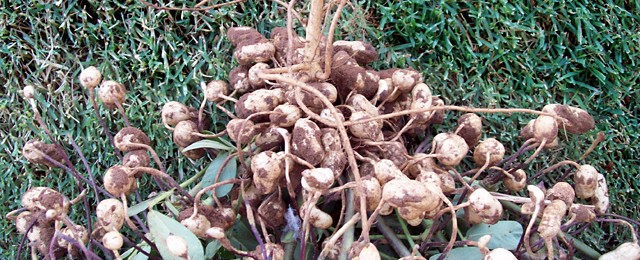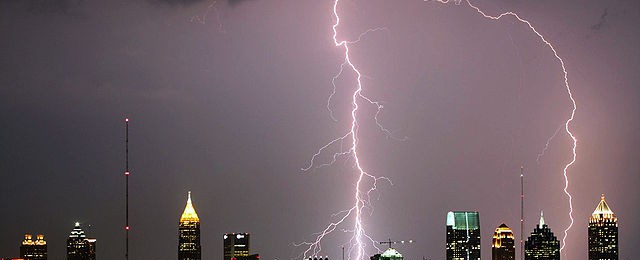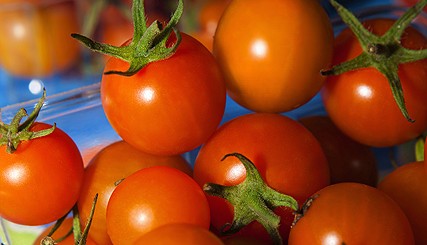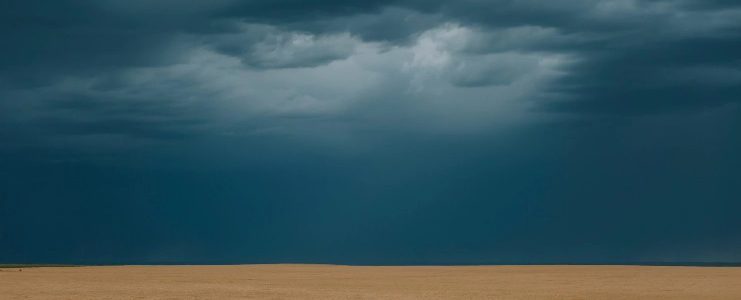2018
-
Back in 2000, an enormous iceberg broke off the Ross Ice Shelf in Antarctica. It was the size of Connecticut and was called B-15. All these years later, the iceberg is still around, although it has been losing pieces ever since it broke off. Now, a big crack along the length of the remaining ice…
-

Eric Prostko of UGA has a great article in the Southeast Farm Press this week on what to do if you are a peanut farmer hammered by all the rain we have had the last few weeks. If that is you, then you know that work is running way behind schedule and you are trying…
-

You might remember learning as a kid that if you see lightning and count the number of seconds until you hear thunder, then for every five seconds it takes, the lightning is one mile away. How good is this estimation really? It turns out that based on simple physics, it is actually pretty good. You…
-

We are now well into the typical summertime precipitation pattern for the Southeast. Ample soil moisture from our wet May and early June has provided a good source of water vapor for the development of daily thunderstorms. As usual, these storms will be hit-or-miss across the area, although most areas are likely to see some…
Posted in: Climate outlooks -

In the last day I’ve seen a couple of new stories on the response (or lack thereof) to damage from Hurricanes Maria and Irma, which hit Puerto Rico and Florida, respectively. The National Public Radio story looks at FEMA’s tardy response to the devastation from Maria across the island of Puerto Rico. You can read…
-

Tomatoes might not be the first crop you think of when you consider Iceland, way up north near the Arctic Circle in the Atlantic Ocean. But one family has made a good living growing these delicious food items by harnessing the power of geothermal energy to heat their greenhouses, producing nearly a ton of fruit…
-

While wheat is not a major crop in the Southeast as it is in some other parts of the country, it is susceptible to hail damage here too, although the hail storms are not as frequent as in the wheat belt of the Plains. This is an interesting story about what happens to a field…